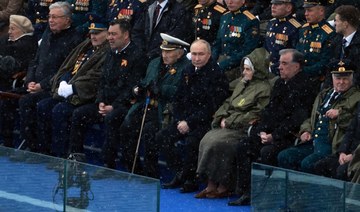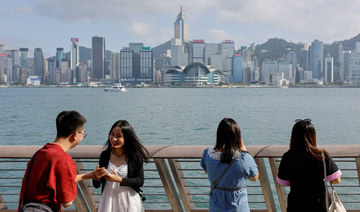JEDDAH: More than 4 percent of the world’s population lives with depression, and women, youth and the elderly are the most prone to its disabling effects, the World Health Organization (WHO) has said.
An estimated 322 million people suffered depressive disorders in 2015, a rise of 18.4 percent in a decade, as people live longer, the UN agency said in a report.
Global economic losses exceed $1 trillion a year, it said, referring to lost productivity due to apathy or lack of energy that lead to an inability to function at work or cope with daily life.
“Depression is the single largest contributor to years lived with disability. So it’s the top cause of disability in the world today,” Dr. Dan Chisholm of WHO’s Department of Mental Health and Substance Abuse told a news briefing.
Depression is 1.5 times more common among women than men, he said.
There are interrelationships between depression and physical health. For example, cardiovascular disease can lead to depression and vice versa.
A further 250 million people suffer anxiety disorders, including phobias, panic attacks, obsessive-compulsive behavior and post-traumatic stress disorder, the report said.
Some 80 percent of those stricken with mental illness live in low- and middle-income countries.
“That puts paid to the notion of these disorders being diseases of the rich or the affluent, that is not the case. In fact in many countries people who are affected by poverty, unemployment, civil strife and conflict are actually at higher risk of certainly anxiety disorders and also depression,” Chisholm said.
Three age groups are particularly vulnerable to depression — youth, pregnant or post-partum women, and the elderly.
“The pressures on today’s youth are like no other generation perhaps,” Chisholm said.
“Another target group is women who are pregnant or have just given birth. Depression around that period is actually extremely common, around 15 percent of women will suffer not just ‘the blues’, but a diagnosable case of depression.”
Retirees are also susceptible. “When we stop working or we lose our partner we become more frail, more subject to physical diseases and disorders like depression do become more common.”
An estimated 800,000 people die from committing suicide each year, a “pretty horrifying figure,” Chisholm said. “It is more common in males in higher income countries but more common in females in lower- and middle-income countries.”
The WHO is running a campaign to tackle stigma and misconceptions called “Depression: Let’s Talk.”
“We feel that is a key first step, that if we want to bring mental health, depression and other mental disorders out of the shadows, we need to be able to talk about it,” Chisholm said.
Types and symptoms
Depending on the number and severity of symptoms, a depressive episode can be categorized as mild, moderate, or severe.
A key distinction is also made between depression in people who have or do not have a history of manic episodes. Both types of depression can be chronic (i.e. over an extended period of time) with relapses, especially if they go untreated.
Recurrent depressive disorder: This disorder involves repeated depressive episodes. During these episodes, the person experiences depressed mood, loss of interest and enjoyment, and reduced energy leading to diminished activity for at least two weeks. Many people with depression also suffer from anxiety symptoms, disturbed sleep and appetite and may have feelings of guilt or low self-worth, poor concentration and even medically unexplained symptoms.
Depending on the number and severity of symptoms, a depressive episode can be categorized as mild, moderate, or severe. An individual with a mild depressive episode will have some difficulty in continuing with ordinary work and social activities, but will probably not cease to function completely. During a severe depressive episode, it is very unlikely that the sufferer will be able to continue with social, work, or domestic activities, except to a very limited extent.
Bipolar affective disorder: This type of depression typically consists of both manic and depressive episodes separated by periods of normal mood. Manic episodes involve elevated or irritable mood, over-activity, pressure of speech, inflated self-esteem and a decreased need for sleep.
WHO response
Depression is one of the priority conditions covered by WHO’s Mental Health Gap Action Program (mhGAP). The program aims to help countries increase services for people with mental, neurological and substance use disorders, through care provided by health workers who are not specialists in mental health. The program asserts that with proper care, psychosocial assistance and medication, tens of millions of people with mental disorders, including depression, could begin to lead normal lives — even where resources are scarce.
Key facts
• Depression is a common mental disorder. Globally, more than 300 million people of all ages suffer from depression.
• Depression is the leading cause of disability worldwide, and is a major contributor to the overall global burden of disease.
• More women are affected by depression than men.
• At its worst, depression can lead to suicide.
• There are effective treatments for depression.
— With input from Reuters






















